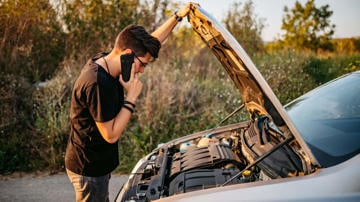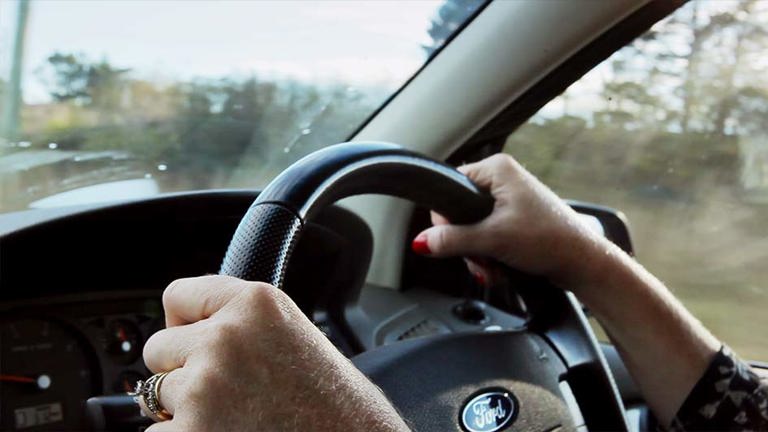When things go wrong with your car, it’s always inconvenient and often expensive. If you have comprehensive car insurance, you’ll have the comfort of knowing that you’re covered for a range of insured events – including car accidents, theft, hail damage and falling trees among them.
But what about mechanical issues? The answer to that comes down to the difference between mechanical failure and an unforeseen event. Before we address this, it’s important to understand the types of car insurance available.1
Four types of car insurance explained
Compulsory Third Party (CTP) insurance is mandatory in every Australian state and territory and protects you from financial liability if you’re at fault in an accident in which someone is killed or injured. Depending on where you live, you’ll either have CTP insurance coverage included in your car registration or you’ll need to pay for it separately. In New South Wales, for example, CTP is referred to as a Green Slip and must be purchased separately from a choice of insurers.2 In Queensland, the CTP fee is included in the cost of registration.3
On top of CTP, it might be a good idea to consider getting additional levels of insurance cover that protect you from financial liability if you cause an accident and your car damages other cars or property. Three types of insurance will do this:
Comprehensive: Generally, the top level of car insurance, covering loss or damage to your car, as well as damage it causes.4
Third Party Fire & Theft: Covers your car against fire and theft and for damage caused by your car.4
Third Party Property Only: Covers damage your car causes to somebody else’s property.4
Insured events vs. mechanical breakdowns
Keeping in mind these various types of car insurance, the next step is understanding the difference between an insured event (covered by insurance) and mechanical failure (not covered).
Marni Jackson, Youi’s Head of Product – Vehicle, explains the distinction like this:
“Insured events are specifically listed in your PDS, and are typically events that are unexpected and occur suddenly at a specific place and time. They include accidents, fires, malicious criminal damage caused by another person, storms, floods and Youi’s Product Disclosure Statement (PDS).4
Mechanical failure and breakdown, whilst it can stop you in your tracks, is not an insured event. Mechanical breakdown generally refers to electrical or mechanical issues with your car that result from faulty parts or general wear and tear.”
If you’re still unsure of the distinction between the two, consider these scenarios.
Scenario 1: Does car insurance cover transmission damage?
As you’re driving home from work in your brand-new car, you notice that your vehicle is suddenly revving at an extremely high rate. As you continue driving, you realise that the car isn’t changing gears. Concerned, you pull into a nearby garage. After inspecting your car, the mechanic tells you that there is a problem with your automatic transmission, and it needs to be replaced.
When you’re thinking about whether your car insurance would cover you, the first place to check is the list of insured events. Even though this is an unexpected event – it’s a new car, after all – none of the listed insured events have occurred. The problem here is a mechanical fault. In the case of a new car, the warranty may cover repairs or a replacement transmission.
Scenario 2: What if mechanical failure causes an accident?
You’re out for a drive in your 10-year-old car. As you round a bend, you hear a loud crack, the steering wheel shudders in your hands, and suddenly the car veers off the road and you crash into a tree. It’s later determined that your car’s steering snapped under pressure, and that sent you careening out of control, causing the crash.
Given the accident was caused by a mechanical fault, you wonder whether your comprehensive insurance will cover the accident.
In this case, if your vehicle was roadworthy before the accident, the damage sustained during the crash will usually be covered. The mechanical fault itself wouldn’t be covered, but the fact that your car careered off the road and hit a tree is an unforeseen circumstance, which means you may be able to claim on your insurance.
Similarly, if a mechanical fault in your vehicle causes an accident involving another vehicle, your comprehensive insurance will usually cover the damage to both. But as Jackson explains, it won’t cover the repairs to the mechanical part itself.
“If the brakes on your vehicle are faulty and you run into the back of another car, we would cover the damage to the front of your car and the back of the other car, but not the repairs to the faulty brakes,” she says.
However, if your car was unroadworthy before the accident, or you knew about the fault and chose to drive the car anyway, your insurance company might decide not to pay your claim. This is because it is your responsibility to ensure your car is maintained and roadworthy at all times.
How to try to avoid mechanical faults in your car
Given that insurance doesn’t cover mechanical problems, it’s worth minimising the likelihood of issues occurring in the first place by regularly maintaining and servicing your car.
According to the Motor Trades Association (MTA) Queensland, most modern cars should be serviced every 12 months or 15,000km (whichever comes first).5 But it always makes sense to get your vehicle serviced in line with the manufacturer’s recommendations.
Note that older cars may need to be serviced more often – every three months or 5,000km. Neglecting to service your car regularly can negatively affect fuel economy and increase the risk of mechanical failure and breakdown, according to the MTA Queensland.
Get driving again sooner with roadside assistance
Getting stranded due to a mechanical fault is at best inconvenient and at worst dangerous. Some insurers, including Youi, include 24/7 roadside assistance as standard with comprehensive car and motorcycle insurance policies.6
This includes jump starts for flat batteries, delivery of a fuel top-up, vehicle towing and assistance with lost or locked keys.6
“We don’t want to see anyone stuck on the side of the road,” says Jackson. “That’s why your Youi comprehensive car insurance includes roadside assistance, to get the driver and their vehicle to a safe place.”
Want to know more about what Youi’s comprehensive insurance offers?4 Learn more or start a quote to see if our comprehensive insurance with 24/7 roadside assistance6 might suit you.
1 Source: moneysmart.gov.au – Choosing car insurance
2 Source: NSW Government – How to buy a Green Slip
3 Source: Queensland Government – Welcome to MAIC
4 See our Car PDS for full details
5 Source: Motor Trades Association Queensland – How Often Should I Service My Car?
6 Available with Comprehensive policies. Exclusions, limits, waiting periods and additional fees may apply. For more details, see the T&Cs and Car PDS and Motorcycle PDS.





